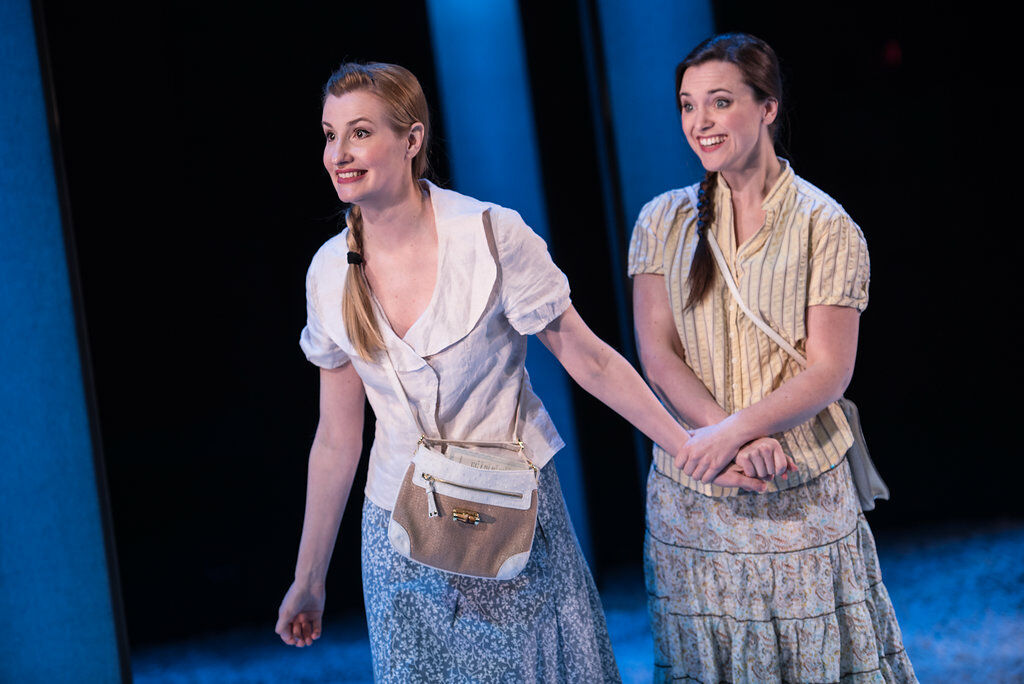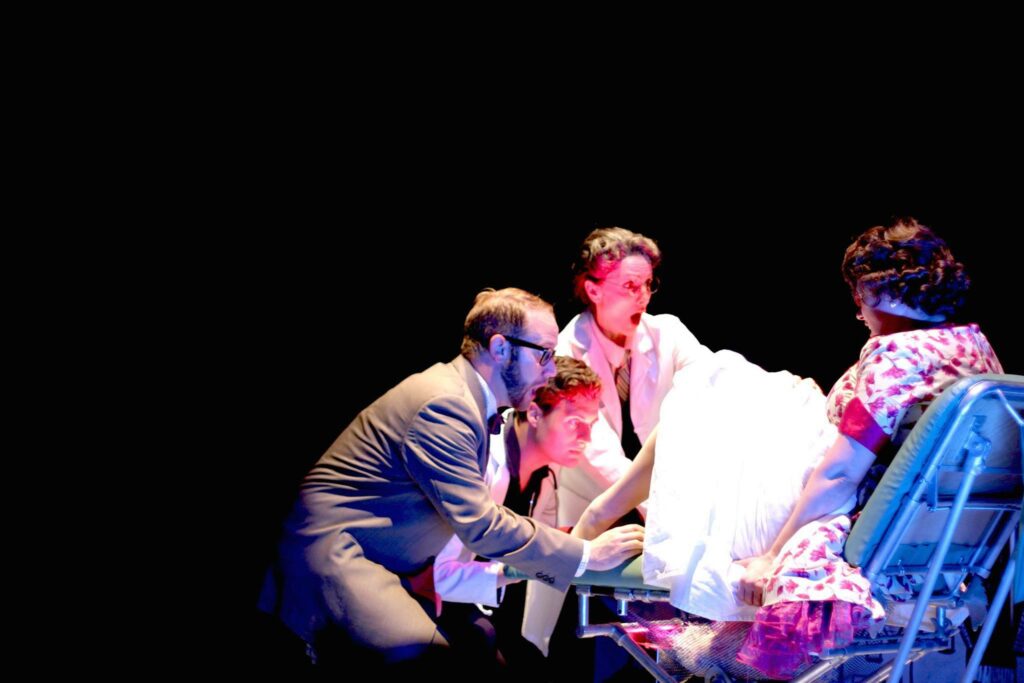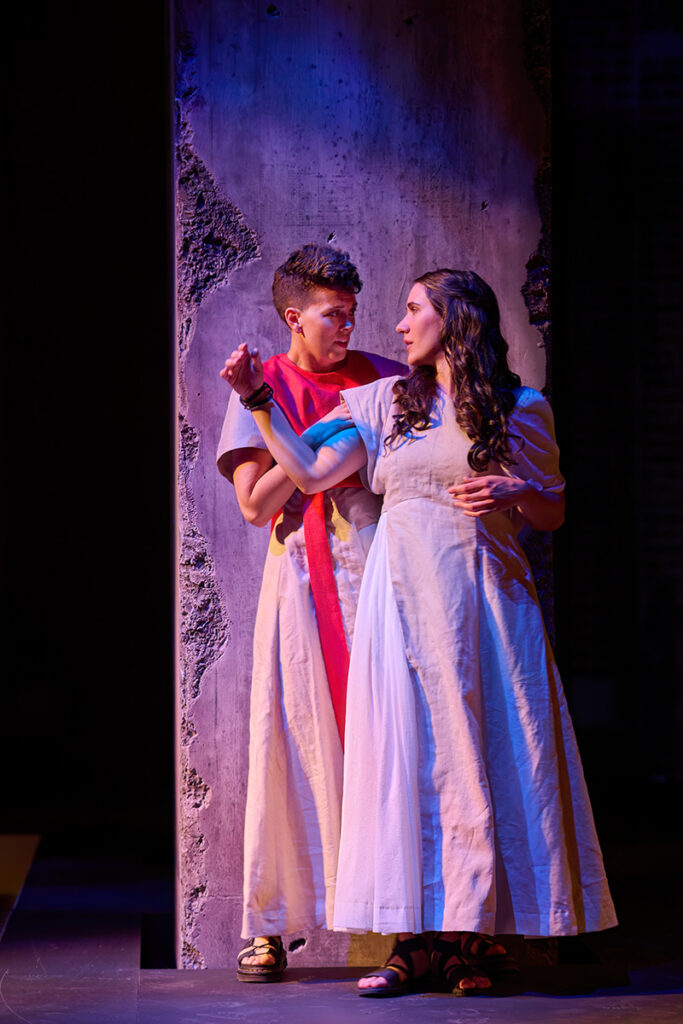Canadian Opera Resource
Canadian Opera Resource
COR
Operas
Content warning: captivity, sex trafficking, sex work, sexual violence, violence, death
The Enslavement and Liberation of Oksana G. is a fictional dramatic opera built on extensive factual research. Set in Ukraine in 1997, it is the story of Oksana, a young woman lured into the world of sex trafficking by a Russian recruiter, Konstantin, who ...
The Enslavement and Liberation of Oksana G. is a fictional dramatic opera built on extensive factual research. Set in Ukraine in 1997, it is the story of Oksana, a young woman lured into the world of sex trafficking by a Russian recruiter, Konstantin, who ...
Composer: Aaron Gervais
Librettist: Colleen Murphy
Content warning: stalking
A young barista seems to know a surprising amount about one of the customers at her cafe.
A young barista seems to know a surprising amount about one of the customers at her cafe.
Composer: Iman Habibi
Librettist: Jessica Murphy Moo
Content warning: birth
A nuclear family adrift in the atomic age. Since Prometheus stole fire from the gods, we have flirted with the dangerous beauty of science. In this cartoon fable, a father protects his family at any cost.
Thomas and Claire fall madly in love at a fundraising party. Thomas has decided to “find a wife, get a life,” whi...
A nuclear family adrift in the atomic age. Since Prometheus stole fire from the gods, we have flirted with the dangerous beauty of science. In this cartoon fable, a father protects his family at any cost.
Thomas and Claire fall madly in love at a fundraising party. Thomas has decided to “find a wife, get a life,” whi...
Composer: Juliet Palmer
Librettist: Julie Salverson
Content warning: death, murder, violence
This opera explores the interior realm of a woman’s response to a crisis. The Laurels plays with audience assumptions and expectations; it is well into the piece before we realize the stranger is not the person he appears to be. While it is important that Laurel’s understanding of the Stranger is consi...
This opera explores the interior realm of a woman’s response to a crisis. The Laurels plays with audience assumptions and expectations; it is well into the piece before we realize the stranger is not the person he appears to be. While it is important that Laurel’s understanding of the Stranger is consi...
Composer: Jeffrey Ryan
Librettist: Michael Lewis MacLennan
On a fateful school trip to the ruins of Pompeii, the fantasies of smitten teenagers Suzie and Cass are ignited. They are transported from 1977 to 79 AD, where they discover romantic freedom in the looming shadow of Mount Vesuvius – but not for long. The timeline shifts to 1981 and the Fly by Night, a Toronto lesbian bar, in the aftermath of the...
Composer: Kye Marshall
Librettist: Amanda Hale
COR
Excerpts
Dima has found Oksana at the refuge, and shows Konstantin a photograph of her as proof.
Refugees are trying on clothes, when Dima and Konstantin enter looking for Oksana. Konstantin offers Father Alexander money for Oksana and Clara calls the police; Konstantin and Dima leave before the police arrive.
Father Alexander discovers the distress call was a set by Konstantin, but Dima decides he can't beat up a priest and lets Father Alexander go back to Brindisi where Konstantin is.
Konstantin breaks into Oksana's room and tries to convince her to leave with him. When this fails, he tries to rape her again but she stabs him. He gets the knife and stabs her before he dies. Father Alexander returns and Oksana dies of her wound, dreaming of home.
A female barista is infatuated with a male customer and stalks him. He thinks he recognizes her from his neighbourhood.
The pilot watches Hope from afar. They meet and become lovers.
A young woman, Laurel, runs through a dark forest, filled with anxiety and haunted by disturbing memories.
Laurel stabs the Stranger, killing him. As his body slides to the ground to rest at her feet, she begins to feel a new sense of freedom, not realising that it is at the cost of her conscience and her humanity. The aria should be performed with an improvisational blues quality over the regular pulse of the accompaniment, to convey both this sense...
In a wooded park at night, it seems like Laurel is running for her life- but it turns out she is running from the memory of the murder she committed that night.








